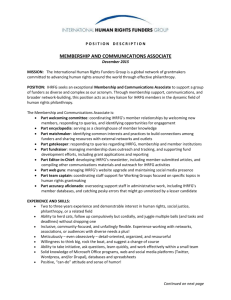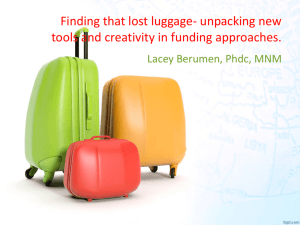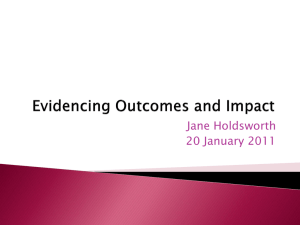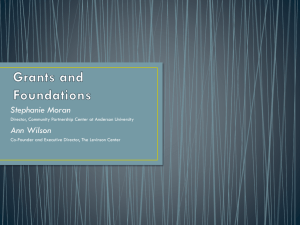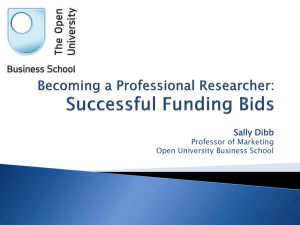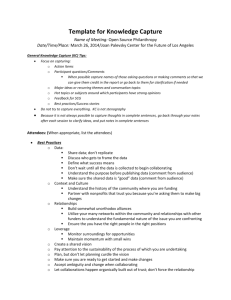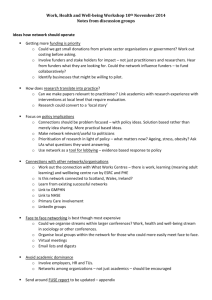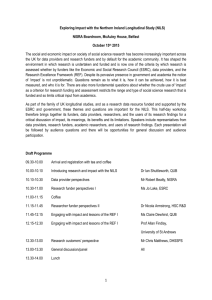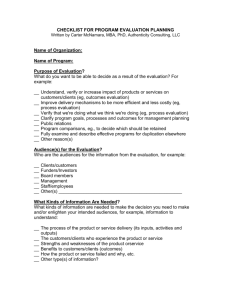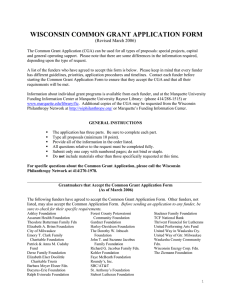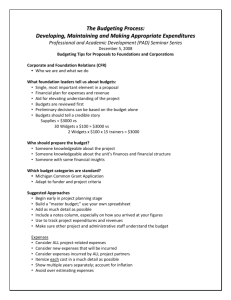Grants for Religious Organizations
advertisement
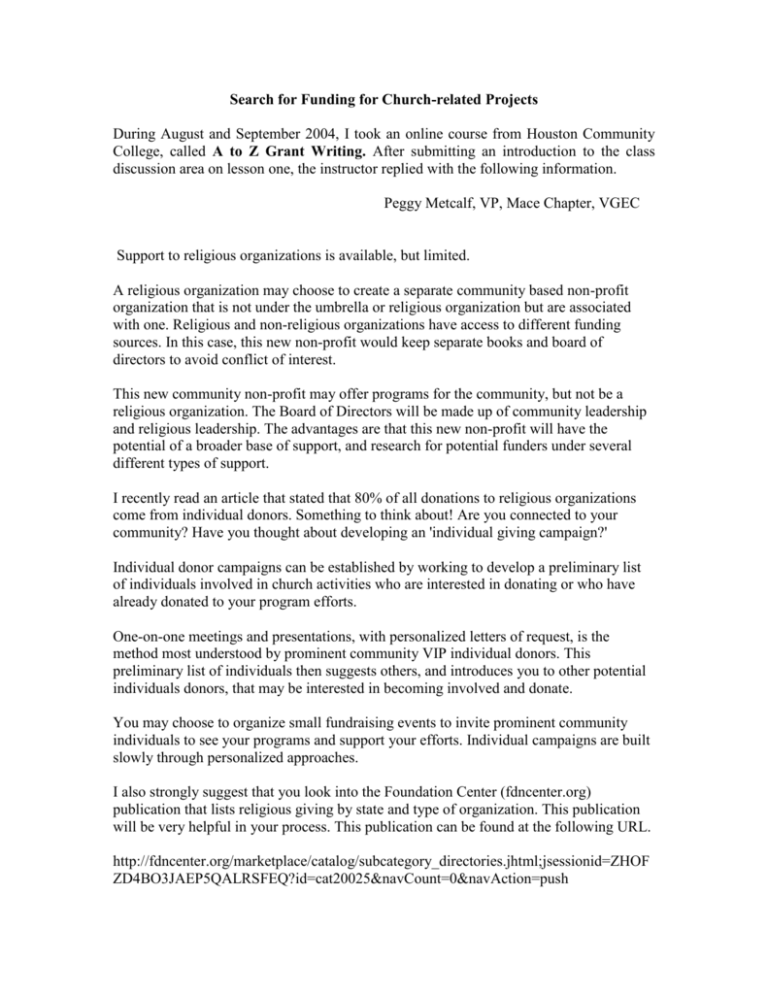
Search for Funding for Church-related Projects During August and September 2004, I took an online course from Houston Community College, called A to Z Grant Writing. After submitting an introduction to the class discussion area on lesson one, the instructor replied with the following information. Peggy Metcalf, VP, Mace Chapter, VGEC Support to religious organizations is available, but limited. A religious organization may choose to create a separate community based non-profit organization that is not under the umbrella or religious organization but are associated with one. Religious and non-religious organizations have access to different funding sources. In this case, this new non-profit would keep separate books and board of directors to avoid conflict of interest. This new community non-profit may offer programs for the community, but not be a religious organization. The Board of Directors will be made up of community leadership and religious leadership. The advantages are that this new non-profit will have the potential of a broader base of support, and research for potential funders under several different types of support. I recently read an article that stated that 80% of all donations to religious organizations come from individual donors. Something to think about! Are you connected to your community? Have you thought about developing an 'individual giving campaign?' Individual donor campaigns can be established by working to develop a preliminary list of individuals involved in church activities who are interested in donating or who have already donated to your program efforts. One-on-one meetings and presentations, with personalized letters of request, is the method most understood by prominent community VIP individual donors. This preliminary list of individuals then suggests others, and introduces you to other potential individuals donors, that may be interested in becoming involved and donate. You may choose to organize small fundraising events to invite prominent community individuals to see your programs and support your efforts. Individual campaigns are built slowly through personalized approaches. I also strongly suggest that you look into the Foundation Center (fdncenter.org) publication that lists religious giving by state and type of organization. This publication will be very helpful in your process. This publication can be found at the following URL. http://fdncenter.org/marketplace/catalog/subcategory_directories.jhtml;jsessionid=ZHOF ZD4BO3JAEP5QALRSFEQ?id=cat20025&navCount=0&navAction=push Page 2 Grants/ Fundraising Here is a good working list of potential funders to get you started in the process of researching and organizing good-match potential funders for your program efforts. Remember, you will need to research each of these potential funders to find if they are a good match for your organization and program efforts. You can use your favorite search engine to find information on the potential funders or the following Internet research tools: Philanthropy on the Internet http://www.fundsnetservices.com/index4.htm The Foundation Center http://fdncenter.org The Grantsmanship Center http://www.tgci.com The Chronicle of Philanthropy – Corporate Grantmakers http://philanthropy.com/free/resources/gifts/corfnd.htm You can also complete a web search with several of the popular search engines (yahoo.com; ask.com; google.com; etc.) on the keywords PHILANTHROPY + STATE (State/Country of the organization for which you are seeking funding). This yields multiple public, private, community and corporate foundations that fund work regionally. I also strongly suggest that you make a visit to your regional funding library . This library contains many useful research tools and resources. Many smaller foundations and companies do not have websites, so a visit to the library will be necessary to locate them. Remember, the more funder application guidelines (in publication and on the Internet) that you read and study the more you will understand how funder's present themselves, their mission and goals, and application guidelines; and the documents and materials they expect in a complete proposal package. Remember that a ‘team of funders’ is needed to support a proposed program. No single funder will provide 100% of the funds needed to support any given program or project. US Department of Health and Human Services, The Center for Faith-Based & Community Initiatives http://www.hhs.gov/fbci/ Page 3 Grants/Fund Raising TEXAS Funders to Religious Organizations Alexander Foundation, Stanford & Joan, The ALFA Foundation, The Austin Community Foundation for the Capital Area, Inc. Bass, Jr. Foundation, Harry W. Cemo Foundation, Michael and Rebecca Chilton Foundation Trust, The Community Hospital Foundation, Inc. Cotham Foundation, Robert & Mary Ann, The Doctors Nursing Center Foundation, Inc. Dougherty, Jr. Foundation, James R., The East Texas Communities Foundation, Inc. Edwards Foundation, J. E. S. Elkins Foundation, J. A. and Isabel M. Elkins, Jr. Foundation, Margaret & James A. Gill Foundation, Pauline Allen Hamman Foundation, George and Mary Josephine Hebert Foundation, Wilton & Effie Mae Kinder Foundation, Inc. King Ranch Family Trust McCoy Foundation, James N. McKee Foundation, Robert E. and Evelyn Moody Foundation, The Mundy Family Foundation, The Murrell Fund, J. Campbell O'Connor Foundation, Kathryn, The Pryor Charitable Trust, Myra Stafford Richmond Foundation Rogers Foundation, The San Antonio Area Foundation Scurlock Foundation Sterling-Turner Foundation Strake Foundation Thomas Family Foundation, Billie and Gillis, The Tobin Endowment, The Trull Foundation, The Vaughan Family Foundation, Rosemary Haggar Ware Foundation, The Watson Family Foundation Young Foundation, Inc., George & Fay

